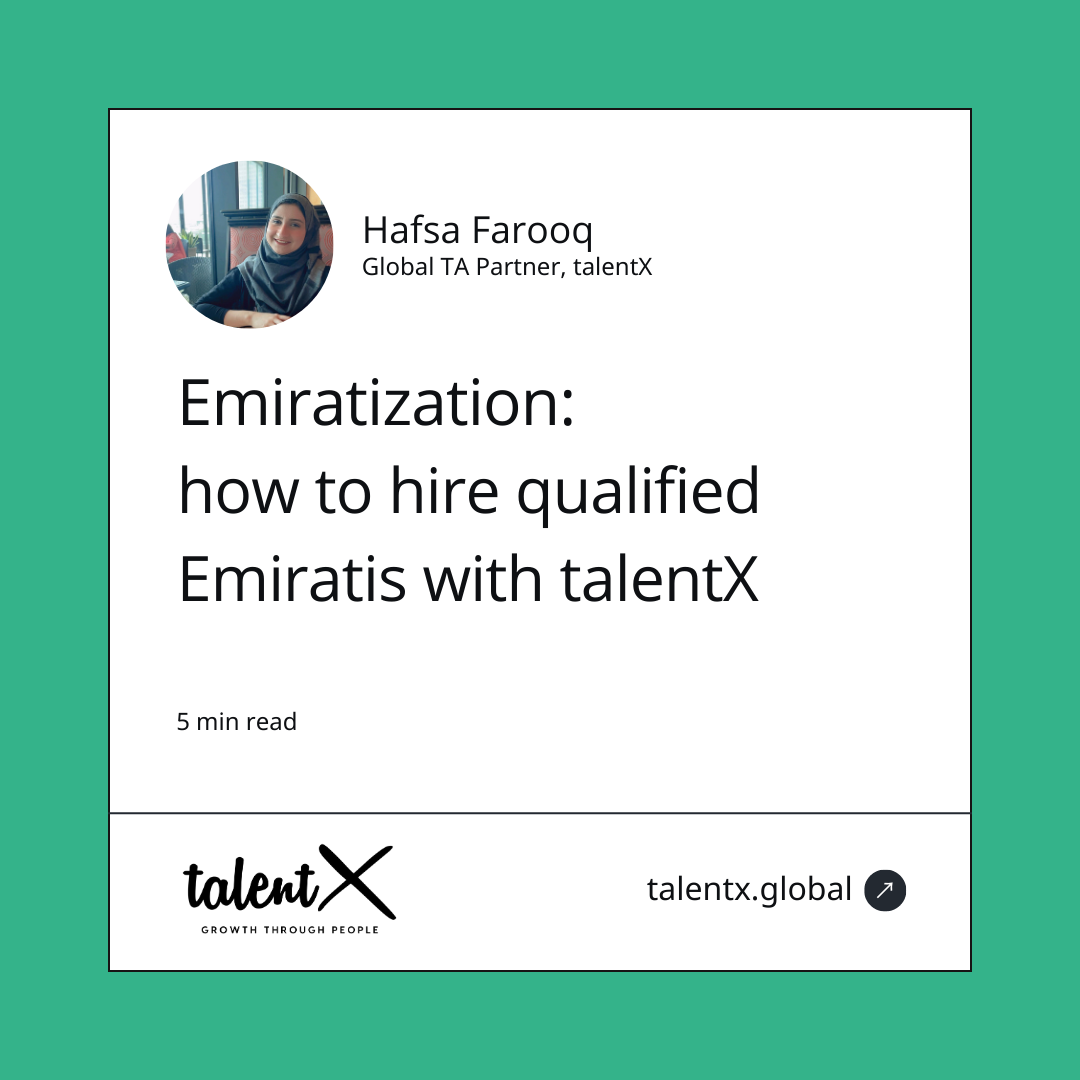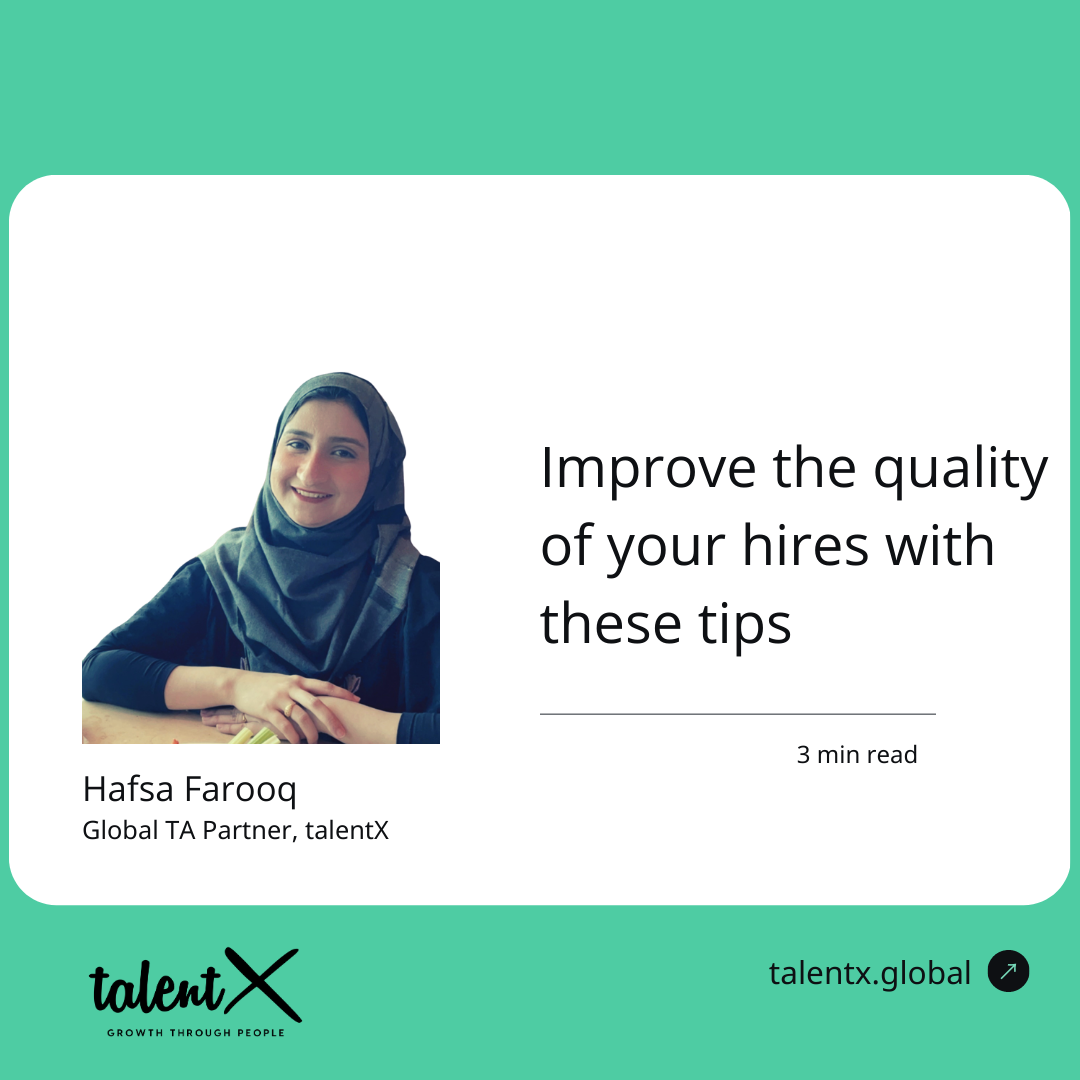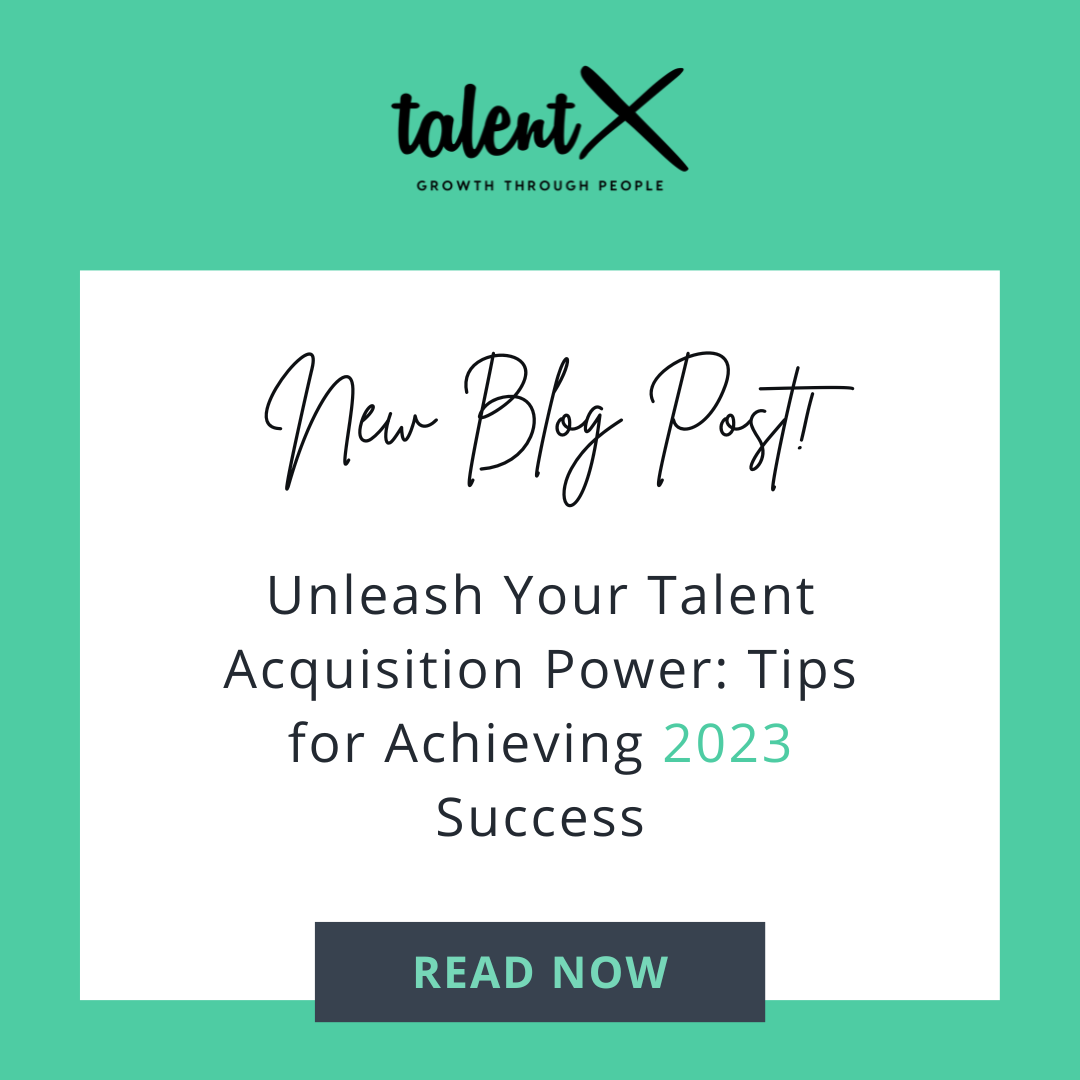Interview with Linu Winny, People & Culture Advisor
We've known Linu for over 7 years and she's one of our trusted HR advisors for company setup in the UAE. As part of our HR/People leadership interview series, we spoke with Linu and found out more about her Gemini twin, the importance of media support, and why HR leaders more than anyone need a buddy system! 👯♀️

What is your name?
Linu Winny
What is your role?
Chief Consultant and Co-Founder of Alpha Corp , EX- Group Head of People and Talent , The Collective.
Tell us about your company
We are End-to-End HR Consultants providing advisory services to company's that are looking at branching out in the UAE. We offer advice to both employers and clients on matters such as setting up the right company, license associated paperwork and recruiting of new staff and their lifecycle management.
Please tell us a bit more about you and your background. What was your first job? Share some fun facts 🎉 and let us get to know you ❤️
I am an experienced Human Resources professional with a demonstrated history of working in Digital, TECH, IT, FMCG, and startups. I have been most successful in managing all of the People/ Culture and Talent aspects of many businesses. Employee Relations, Business Partnering, Talent Acquisition, Talent Management, Succession Planning, Rewards, Employee Engagement, Training and Development, and UAE Labor laws advisory are areas of expertise.
My First job was in recruitment, and it was one of the most enjoyable experiences as I learned what I was good at and that was people.
Fun Facts about me are that I am a problem-solving enthusiast I believe there is my Gemini twin always working on something on the side ♊️
I am an accounting pre-grad with a Mass communications Degree specializing in 13 years of Everything HR. When you get me you get a People specialist, a media enthusiast, and someone to watch your margins…
What is your biggest challenge as a HR leader? What keeps you awake at night? 😴
I believe that organizations should have more media coverage on what they do, what they are about to do, and what they achieved. Making recognitions public is a great motivator and helps employees give more and take more. Not having media support or absence of it is one of the things that keep me awake at night.
How would you describe your company culture?
Very Millennial so not backing down on what we are owed to us and not hesitating to ask for it.
This can sometimes be a real challenge for HR but learning new ways to handle challenges is positive from my perspective.
How would you describe your leadership style?
I would like to believe that I demonstrate a high level of participative leadership within the work environment giving enough focus to the social aspect of work and creating a culture that can invite fellowship in the workplace. I have noticed that with this approach I can serve without sacrificing the flexibility to be who I am at work and live a fulfilling life outside of it.
How important is it to you to build the right team around you and for the company?
I would say it's the most crucial as it helps build a cohesive and productive working team to achieve the required outputs. As an individual, it builds trust and promotes a participative teamwork culture and takes into account the perspective of everyone on the team, and encourages each team member's involvement in the process which will 100% be more effective than a one-sided opinion.
What does talent really mean to you?
I believe it is a direct reflection of a person's aptitude and attained skills that help them complete a task while enjoying it and succeeding at it. I believe if an individual is naturally happy and good at doing something even if that is not their background of studies or experience, it's a diction of his natural talent and should follow the calling.
I have personally in my career noticed employees shifting careers due to their natural talent calling and they are always the best talent a company can attract, any more training and coaching in their field will only add on to their expertise.
What is the key to a strong people function?
A few key points:
- Motivate with positivity
- Respect your team members as individuals
- Practice emotional intelligence
- Communicate effectively
- Developing Conflict Management strategies
- Empowerment
What are the needs of your employees?
Training and Development
Tools
What are some of the most difficult people issues you have faced?
People's issues change every year with what is the latest on the news.
I have faced many challenges but to sum it up as an HR leader, keeping myself updated with the current world affairs (as we have an ex-pat population)/ age group issues of employees/ roles and responsibilities, the inefficiency of the Manager, etc are of the issues.
What is your biggest hiring challenge? How have you worked to overcome this?
Not receiving the right brief from the hiring manager and having a change of mind in between.
Creating a clear SOP helped.
What are the most important skills you look for in a new hire?
- The Right attitude to get the work done
- The Right Aptitude for the job
- Believer in Participative teamwork
- Optimism in problem solving
- Finally the thirst to learn more and share the learning
What has been your biggest hiring mistake?
Hiring due to urgency and not vetting the candidate enough due to timeline issues (this was for my team)
How do you find talent in the current market?
LinkedIn and References
What are you top interviewing tips?
- Go with a "I want to hire this person" attitude and try and match the points to your checklist list instead of making a checklist of "why I don't want to hire" and intimidating the candidate.
- Do not try and present a live issue in front of the candidate and ask them to resolve it as you have the existing team to do that, the interview is not an answer key. Test the candidate for the right skills and presence of mind required to troubleshoot issues with the team.
- Do not compare the candidate with yourself if you are the hiring manager or with another employee, know that each person is different and they will have something different to offer.
How do you keep your employees excited and motivated?
- Recognitions (Not just monetarily)
- Effective feedback and coaching when required
- Bring updated tools and work machines if you need to keep them motivated to work on the latest technology and provide effective working methods.
- Practice participative leadership
What are some ways you've tried to solve your people issues?
Developed Buddy programs to help with issues that involve fear of failure and criticisms by the Manager.
Open door policy for all to allow employees an openness to address issues and resolve them.
How has your experience with hiring and retaining talent changed over the years?
We have noticed that money is not the only attractive factor to switch jobs and we have changed the strategy based on benefits we can offer and this has been a big plus.
What is the most interesting and unexpected thing you have learned from working in a high-growth company?
People still have the same issues in a 5000 people company and a 50 people company. The most interesting is that in a 50 people company the impact is higher and a resolution needs to be done asap whereas in a 5000 people company your turn around time can be longer as long the issues are resolved.
What is the one thing you wish someone would have told you when you became a HR/People leader?
That HR needs to establish a grievance program for HR staff as this often goes unnoticed and it rarely happens.
Do you feel like the people problems have gotten better or worse over the last 12 months?
Gotten better as companies are flexible.
Being a HR/People Leader is a tough gig. What advice would you give others to help them with their own wellness and mental health?
HR needs to find and establish a buddy program for self and the team as this is a mentally exhausting job. To keep yourself updated to resolve and to be part of a wider community or an HR outreach program is necessary.
When you think of a person who has influenced your career and life, who comes to mind? ❤️
My previous boss, Mrs. Smitha Prabhakar, as she is a self made visionary and leader and she helped me find what I am good at.
And finally, if you had to recommend one leadership book/podcast/article, what would it be? 📚
Like She Owns the Place: Unlock the secret of lasting confidence by Cara Alwill Leyba



